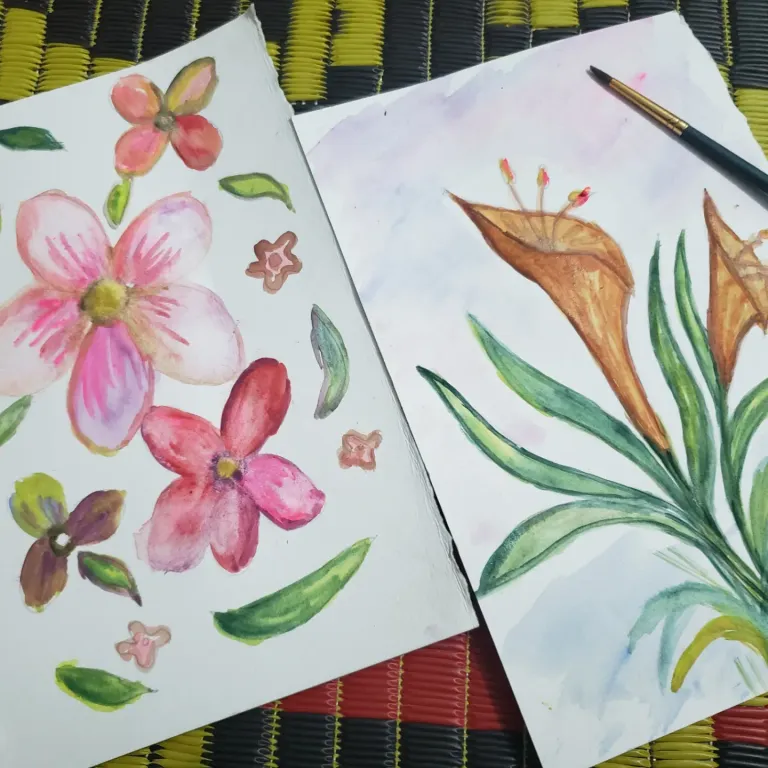
Watercolor flower paintings are a beautiful way to capture the delicate and vibrant nature of flowers. The fluidity of watercolor paints lends itself well to the soft, blending effects that mimic the gentle transitions of color found in real flowers.
Some techniques for Painting Watercolor Flowers are-
Wet-on-Wet: Apply water to your paper before adding pigment. This technique creates soft, blended edges and can be great for capturing the natural transitions in flower petals.
Wet-on-Dry: Apply watercolor to dry paper to achieve more defined edges and details. This is useful for painting the fine details of flowers such as veins in petals or the texture of leaves.
Layering: Start with light washes and gradually build up layers of color. This method helps in creating depth and richness in the painting.
Negative Space: Paint around the flower shapes to create the flowers themselves, allowing the background to define the edges and forms of the flowers.
Blending and Gradients: Use gradients to mimic the natural blending of colors in flower petals. This can be done by gradually adding more pigment to the wet areas of your paper.
Texture Techniques: Experiment with different tools and techniques to add texture, such as using a sponge, salt, or even a toothbrush to create interesting effects in your flowers.
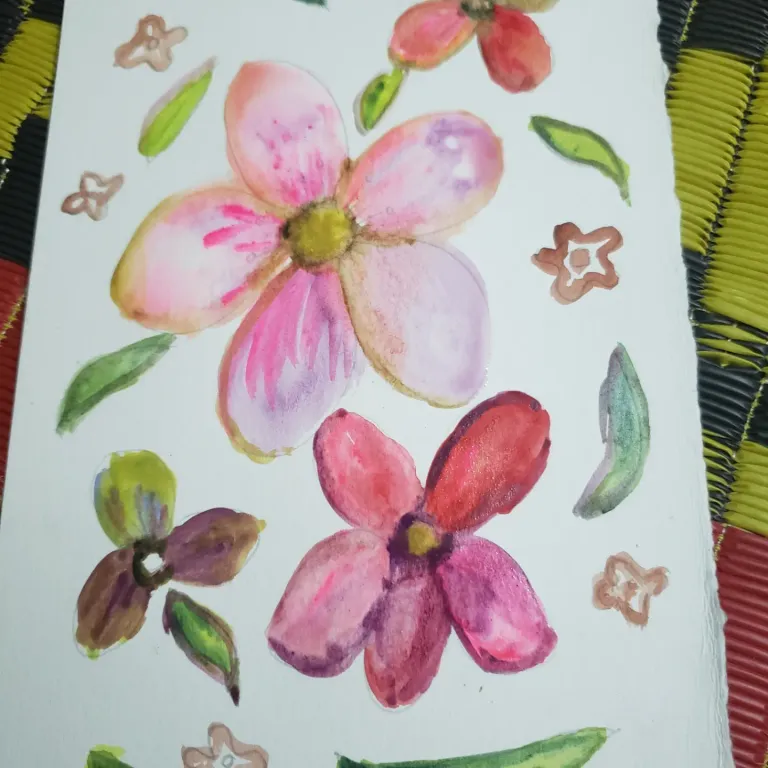
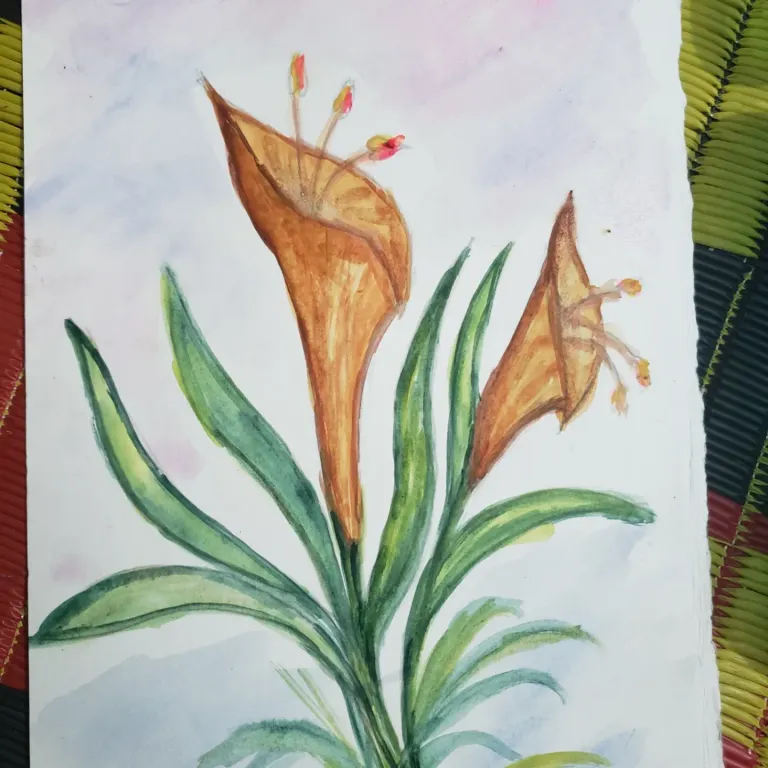
Last two pictures about my acrylic senary on paper.
The painting capture the tranquility and beauty of a sunset over a still lake, with vibrant colors blending smoothly to create a peaceful and serene atmosphere. The reflections in the water will add depth and create a harmonious connection between the sky and the lake.
This acrylic painting scenario focuses on blending, reflection techniques, and creating a serene landscape, making it perfect for practice and enjoyment.
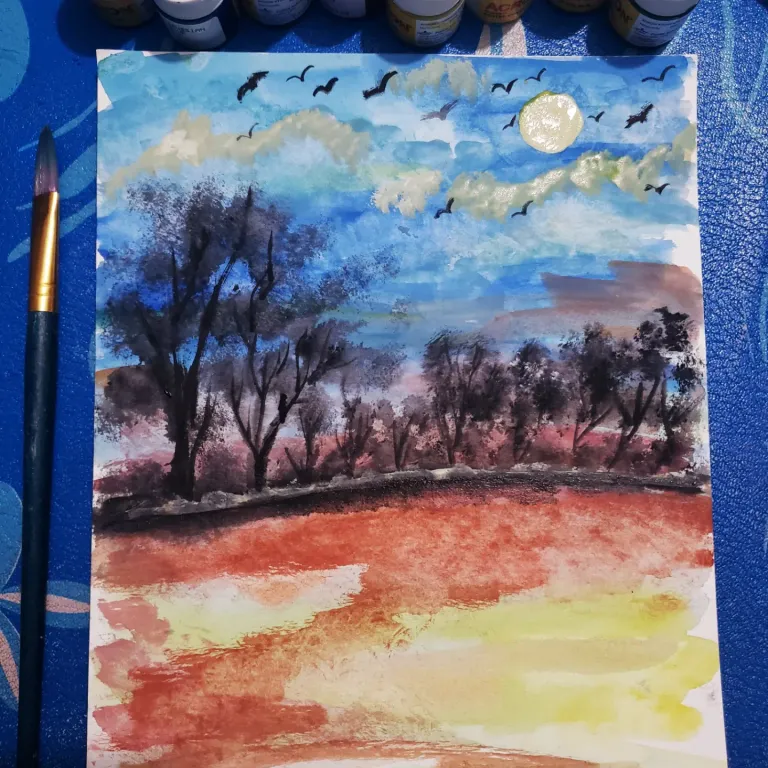
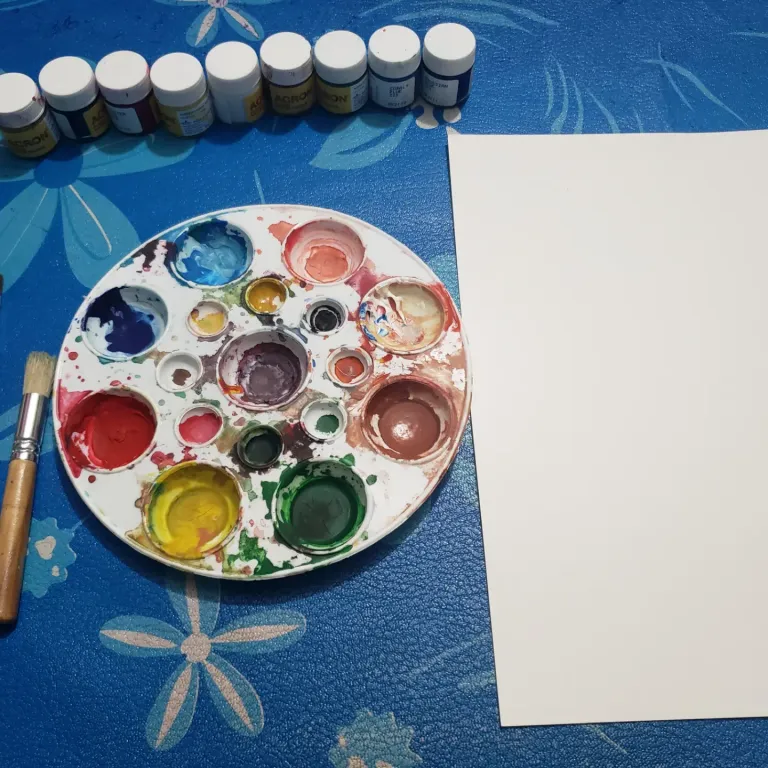
-Theia Art

🏵️🌺🍀🎆🎀🌈🌝